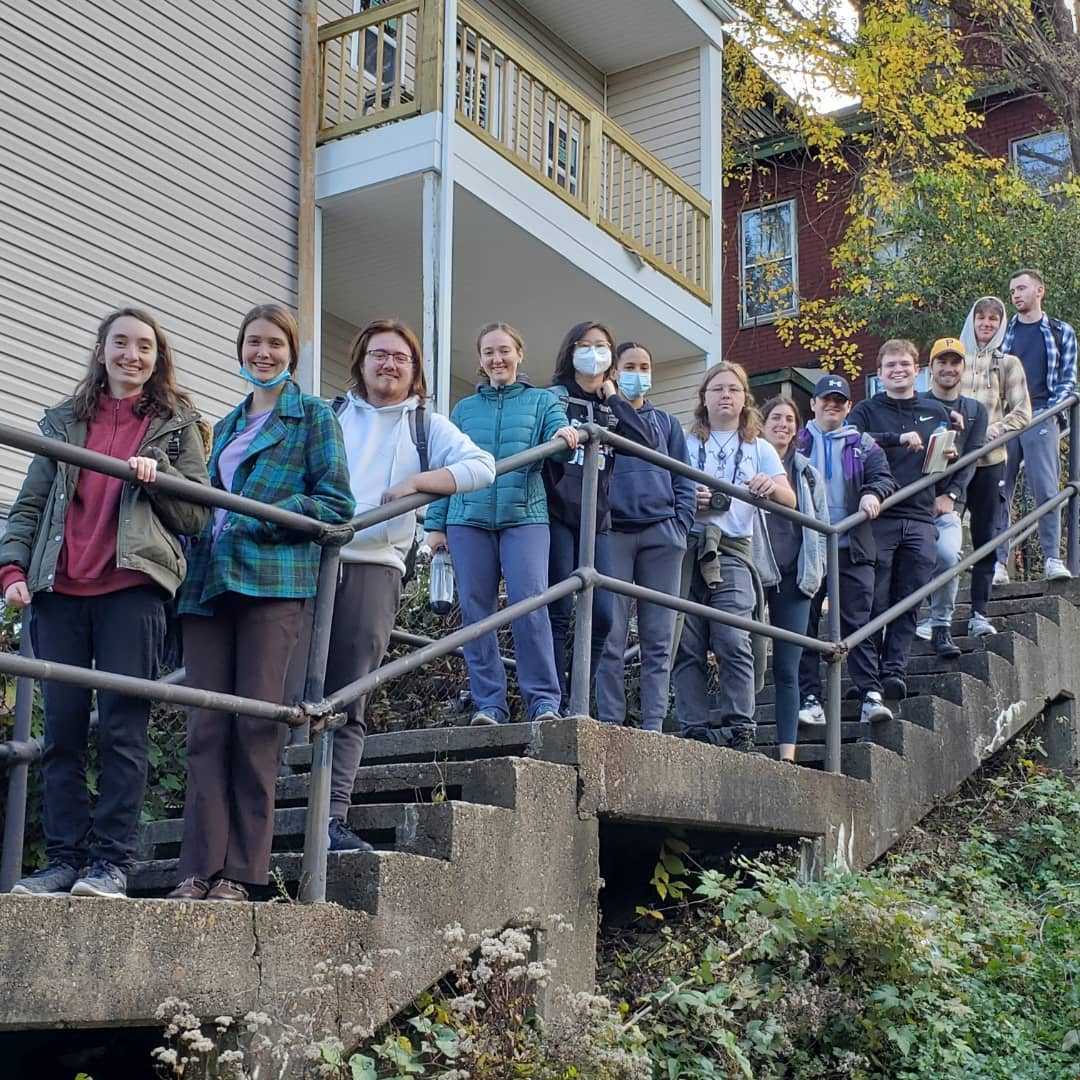Secret Pittsburgh

About Us
The "Secret Pittsburgh" Literature class invites University of Pittsburgh students to explore unusual or hidden spaces of the city, including "secret" spaces within well-known landmarks. Coursework requires them to explore connections among politics, environment, history, community, and written texts. Students learn how to engage with a diverse range of texts and re-consider the cultural work "literature" can do in the world. Course readings include cultural theory, news articles, city guidebooks, promotional websites, archival letters, popular histories, stories, poems, plays, memoirs, and novels.
The conclusion to a semester of reading, writing and on-the-ground investigation is the final project, where students construct entries for this online guidebook. They write and design each entry, using photographs taken during site visits or found in online archives. This guide is the result, presenting firsthand perspectives on Pittsburgh’s secret (and some not-so-secret) places.
The first Secret Pittsburgh class occurred in the Fall of 2015, taught by Dr. Jessica FitzPatrick, who continues to serve as part of the project's pedagogy and curriculum lead team. The project's move to Drupal occurred with the help of instructor Dr. Nicholas Coles and teaching assistant Danielle Grentz. The project's technical lead was Dr. Matt Lavin from 2015 - 2019. Dr. Elise Ryan began guiding the insights of student contributors as instructor starting in fall 2021, when she joined the project's pedagogy and curriculum lead team. Since 2019 the Secret Pittsburgh project has turned towards increasing its interactive digital modes of engagement, with elements like annotated maps and podcast episodes, being integrated to the site. The secretpittsburgh.org version of the digital guidebook, launched in 2022 through a Digital Narrative and Interactive Design (DNID) program capstone, is thanks to the efforts of the design team, including developers Alexander Grattan and Heather Dillman, as well as consultants Dr. FitzPatrick, Dr. Ryan, and Dr. Dmitriy Babichenko.
Secret Pittsburgh is an ongoing collaboration that will grow each semester as future classes compose their own site entries and narrative essays.
There are plenty of guides to the city--but none quite like this.
All content is considered Institutional Work under the University of Pittsburgh Copyright Policy 11-02-02 and is owned by the University of Pittsburgh of the Commonwealth System of Higher Education, which may further license or assign the content to third parties.